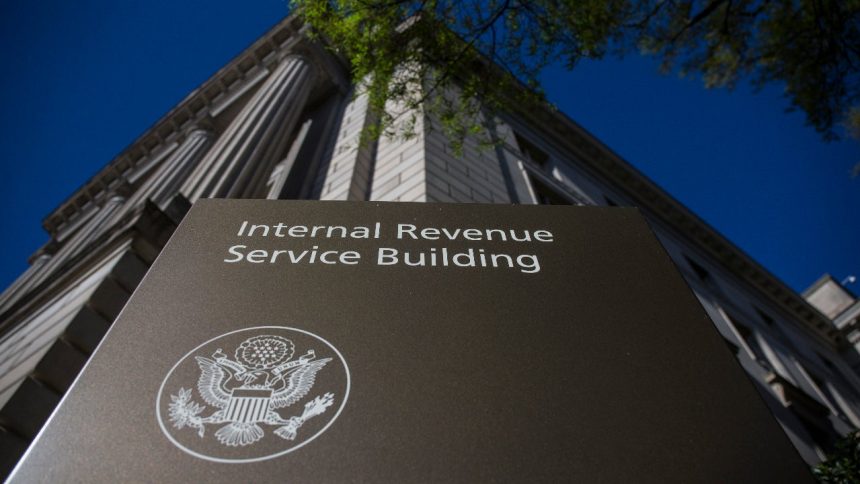Key takeaways
- Interest earned on CDs is considered taxable income by the IRS, regardless of whether the money is received in cash or reinvested.
- Interest earned on CDs with terms longer than one year must be reported and taxed every year, even if the CD cannot be cashed in until maturity.
- Early withdrawal penalties for CDs can be deducted from taxes, potentially reducing the overall tax owed.
Certificates of deposit (CDs) provide a safe place to earn a fixed return on your money, but any interest earned totaling $10 or more is generally taxable and must be reported to the IRS.
Paying tax on CD interest puts a dent in your overall return. Ultimately, you may be able to save money by knowing in advance how CD interest is taxed and what the IRS counts as income.
How CD interest is taxed
The IRS treats interest you earn on a CD as income, whether you receive the money in cash or reinvest it in a new CD. The interest is taxable, the IRS says, in the year it is paid.
If you’ve earned more than $10 in interest in a year, the bank or credit union that issued the CD will typically send you a Form 1099-INT statement. Box 1 shows how much interest you earned that year from the CD.
Even if you don’t receive a Form 1099-INT from the bank, you’re obligated to report earnings of $10 or more.
Keep in mind that the tax rate on CD interest depends on the dollar amount of your gain and what income tax bracket you fall under.
When do you pay taxes on CDs?
You’re obligated to report interest from a CD on your taxes for the year in which the interest was earned, no matter the term length of your CD.
CDs with terms longer than one year
Any CD with a term longer than one year will earn interest in more than one calendar year — and you’ll need to pay taxes every year on the interest accrued in that particular year.
The rule applies even though you’re not able to cash in most CDs until their maturity date.
If, for example, you opened a five-year CD with $10,000 on Jan. 1, 2024, that pays 4 percent APY, the $400 in interest you earn in 2024 will be taxable in that year. Interest earned in each of the remaining four years qualifies as income and is taxable in the year it’s earned.
CDs with terms of one year or less
If you purchase a short-term CD that matures the same year it was purchased and earn $10 or more, you’ll have to pay taxes on it for that year.
If the term of such a CD spans over two calendar years, you’ll need to pay taxes on the interest earned on two consecutive tax returns.
When a CD matures, your options include:
Regardless of what you do with the money, you have to pay tax on any CD interest the year it was earned.
Does cashing in a CD count as income?
You earn interest on the principal amount of your CD over time, yet only the amount that exceeds your initial investment usually counts as income.
Let’s say you purchase a one-year CD for $10,000 that pays a 5 percent APY. When your CD matures, you will have earned about $500. The issuing bank will give you a total of $10,500 (your principal investment plus interest earned) at maturity. Yet only the $500 in interest qualifies as income, and that’s the amount you’ll see in box 1 on the 1099-INT received from the bank at tax time.
How early withdrawal penalties affect taxes owed
While paying an early withdrawal penalty is never fun, there’s one potential bright side of having to hand over that cash: It may reduce your tax obligation.
Most traditional CDs charge penalties for taking out money before the maturity date. If you pay an early withdrawal penalty, you can deduct the full amount from your taxes, even if it’s an amount that’s greater than the interest earned. So, if you earned $50 in interest, but you paid an early withdrawal penalty of $100, the full $100 can be deducted on taxes.
Any early withdrawal penalties will be included in box 2 of your Form 1099-INT from the financial institution and labeled “early withdrawal penalty.”
How to avoid taxes on CD interest
There are three main ways to get around paying taxes on the earnings from your CD.
Retirement accounts
You can include CDs in your retirement savings strategy to score some tax benefits. Many banks offer IRA CDs, which allow you the option to postpone paying taxes (Traditional IRA) or avoid paying them later (Roth IRA). Be mindful of contribution limits for IRA CDs to make sure you can get the tax benefits. The annual limit for 2024 is $7,000 for those under age 50 and $8,000 for those 50 or older.
Health savings account CDs
Health savings accounts (HSAs) help you reduce your taxable income, and some banks offer CDs that help you grow the funds you’re setting aside for medical expenses. However, early withdrawal penalties may still apply, which is a key consideration: If you wind up in a medical emergency, you may have to hand over a penalty to access the funds.
529 CDs
If you’re saving money to pay for education expenses, a 529 CD can help the money grow tax-free. Then, when you’re ready to withdraw funds, you’ll also enjoy an exemption from federal taxes (and in some cases, state taxes, depending on where you live) as long as you’re using the money for a qualified expense.
Bottom line
With a fixed rate of return and a predetermined term length, it’s easy to calculate your earnings from a CD down to the exact cent. However, don’t forget to factor in the potential for handing over some of those earnings to the government. The IRS looks at CD interest as income, so you’re likely not going to be able to keep all of the cash when it matures. If you’re aiming to avoid paying taxes on CD interest, talk to a tax professional about incorporating CDs into your long-term saving strategy.
Read the full article here
















